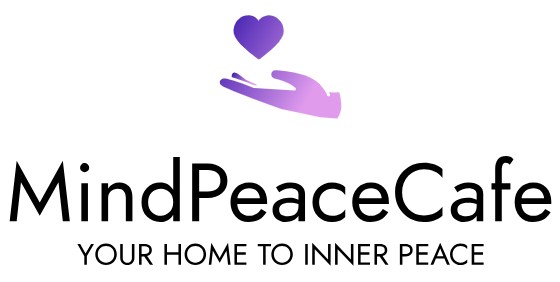Unraveling the Mind-Body Connection: Duke-NUS Medical School’s Revolutionary Insights

Welcome to the forefront of scientific exploration into the profound impact of meditation on our health and well-being. In this exclusive journey, we’ll delve into the groundbreaking studies from Duke-NUS Medical School, uncovering the transformative effects of meditation on both mental and physical wellness. From its influence on cognitive function to its surprising benefits for physical health, we’ll navigate the intricate landscape of meditation’s impact. Join us as we unravel the science behind this ancient practice and its implications for modern health.
1. Diving into the Science of Meditation
Embarking on a journey to understand the profound impact of meditation is akin to investigating a world of mental and physical well-being. As we dive into the scientific exploration of meditation, we uncover a treasure trove of benefits that extend far beyond the traditional understanding of this ancient practice. Recent research illuminates how meditation can act as a catalyst for enhanced mental clarity, stress reduction, and emotional resilience. These findings not only capture the attention of scientists and healthcare professionals but also resonate deeply with individuals seeking holistic wellness.
Moreover, the science behind meditation’s influence on physical health is equally captivating. Studies have revealed its potential to lower blood pressure, boost immune system function, and even positively impact cellular health. This holistic approach illuminates a powerful interplay between the mind and body, showcasing the far-reaching effects of meditation beyond just mental tranquility. The intricate dance between mental and physical well-being unfolds as we delve deeper into the rich and evolving field of scientific meditation research.
Through a friendly journey of exploration, we aim to uncover the multifaceted impact of meditation, shedding light on its role in fostering both mental and physical resilience, vitality, and overall well-being.
2. Insights from Duke-NUS Medical School’s Research

At Duke-NUS Medical School, a beacon of innovative research shines brightly on the transformative effects of meditation. Through their groundbreaking studies, a paradigm shift emerges, redefining the way we perceive and embrace the practice of meditation. The meticulous work from Duke-NUS Medical School’s research not only highlights the mental and physical benefits of meditation but also emphasizes its potential to revolutionize our approach to health and well-being. As we uncover these insights, it becomes increasingly clear that meditation is not just a contemplative exercise, but a profound agent for holistic vitality.
The studies conducted at Duke-NUS Medical School have unearthed compelling evidence of meditation’s impact on mental health, elucidating its role in reducing symptoms of anxiety, depression, and overall psychological distress. Furthermore, their research delves into the neuroscientific basis of meditation, offering tantalizing glimpses into the structural and functional changes within the brain that occur as a result of regular practice. These insights pave the way for a deeper understanding of how meditation contributes to enhanced cognitive function, emotional regulation, and overall mental resilience.
Beyond mental health, Duke-NUS Medical School’s research also illuminates the wide-ranging benefits of meditation on physical well-being. Their findings showcase how meditation can influence physiological processes, such as reducing inflammation, improving cardiovascular health, and fostering a more robust immune system. This comprehensive approach to understanding meditation offers a holistic perspective, emphasizing its potential for bolstering both mental and physical fortitude.
3. The Mental Health Benefits of Meditation
Discovering the transformative effects of meditation on mental well-being and cognitive function unveils a world of possibilities for enhancing our overall psychological resilience and vitality. Countless studies have spotlighted the profound impact that meditation can have on mental health, offering compelling evidence of its ability to reduce stress, anxiety, and symptoms of depression. Whether through mindfulness meditation or loving-kindness practices, individuals have experienced notable improvements in emotional regulation and psychological well-being, fostering a greater sense of inner peace and contentment.
Furthermore, as we delve into the science behind meditation’s influence on cognitive function, a rich tapestry of benefits emerges. Research has indicated that regular meditation can enhance attention, memory, and even decision-making processes. With consistent practice, individuals have reported greater mental clarity, improved focus, and a heightened capacity for managing challenging situations. By exploring these cognitive dimensions, we begin to unravel the intricate ways in which meditation fortifies the mind, offering a shield of resilience against the throes of everyday stresses and pressures.
Our friendly exploration into the mental health benefits of meditation aims to shed light on how this ancient practice is not only a tool for relaxation but also a profound means of cultivating inner strength, emotional balance, and enduring mental well-being.
4. Physical Wellness and Meditation
As we venture into the realm of physical wellness and meditation, a world of interconnectedness and vitality unfolds. The impact of meditation on physical health resounds with remarkable potential, extending beyond mere relaxation to encompass a profound fortification of the body’s resilience. Studies have illuminated the role of meditation in positively influencing cardiovascular well-being, with regular practice demonstrating the capacity to lower blood pressure, reduce heart rate, and even mitigate the progression of atherosclerosis. These findings spotlight the instrumental role of meditation in promoting heart health, offering a natural and accessible means for individuals to nurture their cardiovascular well-being.
Moreover, the link between meditation and immune function unveils a captivating narrative of how our mental practices intersect with the body’s innate defense systems. Research has revealed that meditation can bolster immune function by reducing stress-related responses, lowering inflammation, and enhancing the body’s ability to fight off infections. This holistic approach to wellness emphasizes the intricate relationship between mind and body, where the tranquility cultivated through meditation translates into tangible physical benefits, strengthening our capacity to ward off illness.
Our friendly exploration aims to showcase how meditation emerges not just as a tool for mental rejuvenation, but as a holistic practice that contributes to the overall well-being of the body, offering a harmonious blend of tranquility, vitality, and enduring physical resilience.
How long do I need to meditate to experience benefits?
The duration for experiencing benefits from meditation can vary. Research suggests that even short sessions, ranging from 10 to 20 minutes a day, can yield noticeable improvements in mental clarity, relaxation, and emotional well-being. However, finding a consistent routine that suits your schedule and aligns with your personal comfort is more important than a specific duration. Start with a time frame that feels manageable, and gradually increase it as you become more accustomed to the practice.
Can meditation really have a significant impact on physical health?
Yes, meditation can significantly influence physical health. Studies have demonstrated its ability to lower blood pressure, reduce stress-related inflammation, and enhance immune function. Even though the effects may not be immediately apparent, regular and sustained practice of meditation can contribute to improved cardiovascular well-being and a more robust immune system.
Is meditation suitable for everyone, regardless of age or fitness level?
Meditation is a versatile practice suitable for individuals of all ages and fitness levels. It doesn’t require a particular level of physical fitness and can be adapted to accommodate various needs. There are numerous meditation techniques, such as mindfulness and loving-kindness meditation, that can be tailored to suit individual preferences and physical capabilities. It’s essential to find an approach that feels comfortable and beneficial for your unique circumstances.




